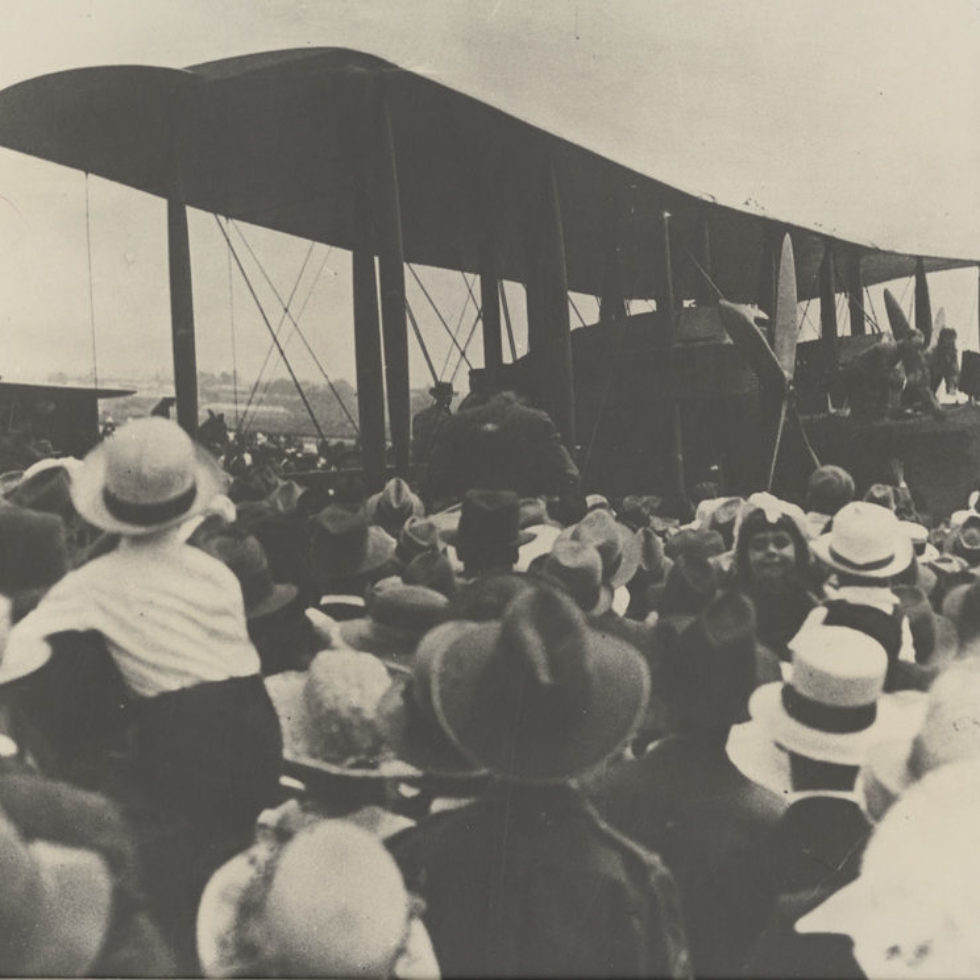
At precisely 3pm on 10 December 1919, the Vimy touched down on a makeshift air strip near Fannie Bay Gaol. Darwin was an outpost of just 1500 people but the townsfolk raced to greet her, carrying the exhausted crew shoulder high. At Government House, they received hundreds of telegrams – including messages from King George V, Winston Churchill and Australian Prime Minister Billy Hughes.
The journey however wasn’t over. The 3,000-mile (4,800km) flight south to Sydney, Melbourne and finally Adelaide was another series of aviation firsts, but the Vimy was close to collapse. Plagued with breakdowns, the journey took three months (three times longer than the entire flight across the world).
In Melbourne, the crew received their cheque for £10,000 from Prime Minister Billy Hughes before Ross had it evenly split four ways. The Smith brothers received Knighthoods, while Jim Bennett and Wally Shiers both received bars to their Air Force Medals and were later promoted to lieutenants.
A certain race mania ensued after the epic flight. Smith was taken on a world speaking tour using aerial cinematography by his friend Frank Hurley. Souvenir badges and programmes were distributed across the country. People even played the Sir Ross Smith Aeroplane Race Game, a board game for two or more players featuring flight paths between England and Australia dotted with penalties and bonuses.
The Smith crew’s fame by now was unparalleled, feted in newspapers across the globe for their achievement. Ross Smith was hailed as a latter-day Captain Cook, the New York Times said he was ‘the foremost living aviator’. He arguably became his young nation’s first international superstar.
Tragically, Ross didn’t have long to enjoy it. He immediately dedicated himself to the next record-breaking flight – a world circumnavigation in a Vickers Viking amphibious aircraft accompanied by Keith and mechanic Jim Bennett. In 1922, during testing the Viking near London, the aircraft spiralled out of the sky. Keith, who had been delayed for the test flight, watched helplessly as his brother and Jim Bennett plunged to their deaths.
Sir Keith Smith continued working in aviation, representing the Vickers company in Australia, before dying of cancer in 1955. Lieutenant Wally Shiers ran a garage and got his pilot’s licence. He lived out his last years in Hilton, Adelaide, and died in 1969.